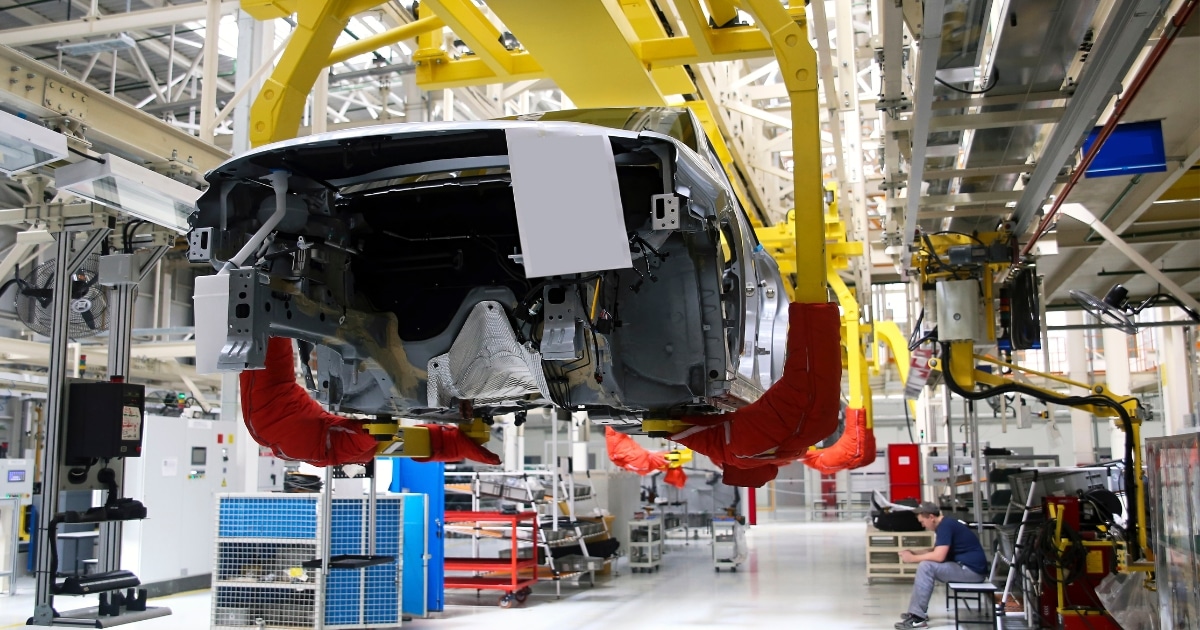The Automotive industry is a large sector with a dynamic market globally. It contributes mainly to economic growth, technological development and transportation development. This sector covers automobile design, development, production, and assembly, including passenger cars, commercial vehicles, and motorcycles.
In India, the two-wheeler sector dominates the industry tremendously due to the growing middle-class population and the young crowd. India tops for being the highest tractor producer in the global landscape. Data says that in FY22, Indian automobile manufacturing was 22.93 million and is estimated to grow more in the coming years. In addition, India is also a popular automotive exporter.
What is Quality Control in Automotive Manufacturing Industry?
Quality control in the Automotive Manufacturing industry is the process where there are certain systematic steps and procedures to ensure that the vehicle meets all the quality standards laid by the company, governing bodies and others. It involves multiple stages such as inspection, testing, and monitoring that help to rectify all the mechanical issues and fulfil all the compliance requirements.
In this blog, let us learn more about how robust ERP software can enhance the quality of auto products effectively.
Enterprise resource planning system is a robust business intelligence software to help the automotive manufacturing industry to follow all the quality standards to stay competent in the business landscape. It instantly optimizes all the areas of the auto business to achieve growth and productivity.
Challenges of the Automotive Manufacturing industry in India
Automotive manufacturing is an intricate process involving many operations. Listed below are some of the challenges faced by automotive manufacturing in India —
- The semiconductor shortage is a huge crisis in India. The manufactured semiconductor is also distributed to the electronic industry, so it takes time for the automotive sector to acquire it for their manufacturing process.
- Fire accidents are one of the challenges mostly concerning electric vehicle (EV) manufacturers. The reason for fire accidents is the inferior battery system in the EVs. So manufacturers have to find a solution to replace it with a quality battery system.
- Supply chain disruption is another big challenge affecting the automotive sector. This industry is highly dependent on the global supply chain system to ensure the smooth production and delivery of vehicles and components on time.
Significance of quality control for the Automotive industry
In the Automotive industry, quality control is very crucial to ensure that the vehicle they manufacture is safe for the consumer’s use. The main objective is to make the manufactured product free of any bugs, technical or operational issues. Further, it undergoes rigorous testing to ensure that the vehicle is well-engineered, comfortable and safe. The automotive sector has to focus on quality as it will help in avoiding high-profile recalls. Recently, we witnessed a few recalls that happened due to safety concerns.
Normally, the quality control process begins way before the first production model of a vehicle is rolled off on the shop floor. So, first, the automotive manufacturing company builds prototypes when they launch a new product. The prototypes are continuously tested to find weaknesses, mechanical problems and other concerning details. So after this process, prototypes are evaluated and rectified, and the design moves to the assembly line where quality control assesses it and documents its progress. Again, after the product is manufactured, it is re-examined to solve issues such as fluid, air leaks, product assembly and mechanical issues.
Also Read : ERP for Automotive Industry
Automotive quality control techniques
Quality control is an essential part of any industry and every job. Take, for example, proofreading an email before sending is one of the simplest forms of quality control. As mentioned earlier, quality control in automobiles begins with the prototype of the vehicle.
Globally, engineers have designed multiple tests to check the car’s capability to withstand real-world situations. One such example is the prototype car which is driven on specially designed surfaces to check the durability of the suspension and the smoothness of the ride. And temperature tests are conducted by exposing the cars to extreme heat and cold conditions to check the mechanical components’ resilience and strength. Another trial is that the car is filled with smoke to check if it is airtight.
The most common and popular quality control test is the crash test. And the vehicle owners are familiar with the government and insurance industry’s crash tests. Automotive manufacturers also design and run their own crash tests to ensure the quick response of the vehicle’s safety systems.
ERP systems are powerful to structure and streamline all the quality control parameters to help businesses to manufacture standard quality products.
How can Sage X3 help in efficient quality management for Automotive manufacturing?
Nowadays, the competition among businesses has increased. Quality is one important aspect that will help the business to survive in the crowded business landscape. Every industry gives more emphasis on creating a standard quality product. Unique for all industries, quality control has a set of processes to define certain elements like quality sheets, quality templates, quality analysis plans etc.
An ERP solution is the best software to efficiently manage and fulfil all the quality requirements of a product. It integrates all the production processes and quality functions seamlessly. Sage X3 is a brilliant system to tie all the quality functions together to follow all the quality checklists and compliance requirements promptly. Let’s look at some of its vital benefits that help to enhance the quality of the vehicles.
- Get granular control over all the aspects of quality control such as nonconformant records, first article inspections and material rejections.
- Real-time data accessibility removes all the bottlenecks in the supply chain system.
- Utilize quality metrics and key performance indicators (KPIs), such as statistical process control (SPC) and statistical quality control (SQC), to effectively monitor and measure the quality of your processes.
- For accuracy and consistency leverage the benefits of process automation and enhanced workflows.
- Incorporate integrated compliance features to ensure strict adherence to industry and governmental standards and regulations.
- Sage X3 provides a 360-degree view of quality control operations. Embrace this comprehensive solution that eliminates barriers between different locations and departments, fostering seamless collaboration and communication.
- Gain full control over inspections, to efficiently define inspection attributes and plans.
- This system provides end-to-end traceability that helps in rapid audits, supports compliance, and tracks supplier quality.
- Generate cost of quality reports to accurately assess the financial impact of quality issues and pin areas where parts are frequently discarded, enabling targeted improvement efforts.
- It has a DMR feature(Discrepant material reports) to give the material review boards(MRB) an online queue of components that fail quality inspections.
- All the inspections and trial records are documented for compliance fulfilment.
Conclusion
Finally, leveraging the benefits of Sage X3 will significantly help in improving the quality of the products in the automotive manufacturing industry. It is an efficient PLM software with robust features, streamlined processes, efficient management of nonconformant records, first article inspections, and material rejections. The coordination of statistical process control (SPO) and statistical quality control (SQC) enables auto manufacturers to control and manage quality metrics efficiently. Implement this solution to boost productivity and growth rapidly.






